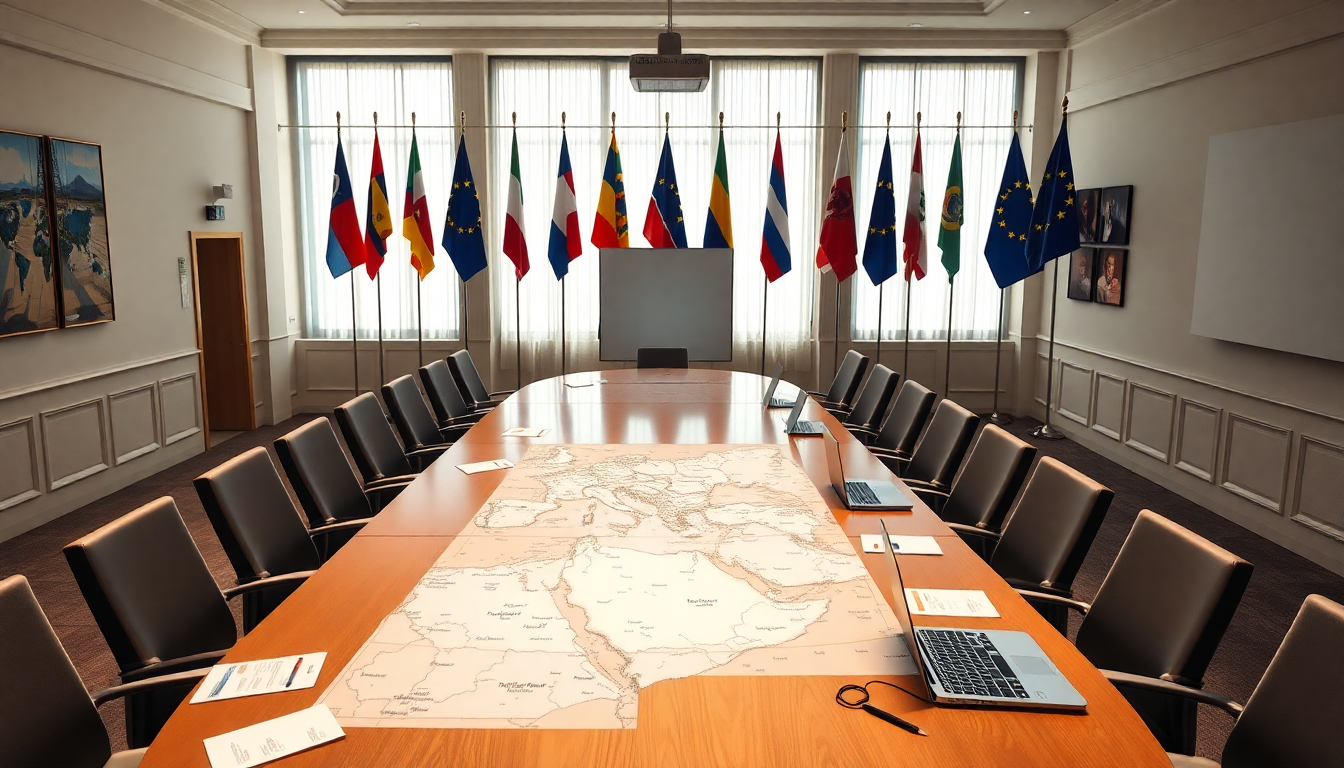Table of Contents
After recent military strikes by the United States on three Iranian nuclear facilities, the call for diplomacy between the U.S. and Iran has never been more urgent. European foreign ministers gathered in Brussels, emphasizing the critical need for dialogue as a way to tackle the escalating conflict. With tensions on the rise, these leaders are pushing for a return to negotiations, especially after previous diplomatic efforts fell short of easing the situation. But what does this mean for the future?
The backdrop of escalating tensions
Over the weekend, the U.S. launched military strikes on Iranian nuclear sites, marking a notable intensification of its involvement in the ongoing conflict between Israel and Iran. This aggressive move followed attempts by European leaders to facilitate dialogue by meeting with Iran’s foreign minister in Geneva, hoping to find common ground before the strikes were carried out. Unfortunately, those diplomatic efforts did not yield the desired results, raising concerns about the potential for further military action. But could there be a way out?
Kaja Kallas, the EU’s foreign policy chief, stressed the importance of finding a diplomatic resolution, stating, “When Iran is willing to talk to us, we have to use this opportunity.” This viewpoint reflects a broader consensus among European officials, who believe that military solutions won’t provide a lasting fix to the nuclear issue. Italy’s Foreign Minister Antonio Tajani even suggested that Rome could be a venue for renewed U.S.-Iran talks, urging all parties to adopt a forward-looking approach. Could Italy really play a pivotal role in these discussions?
The European perspective on negotiation
European leaders are united in their belief that negotiations are the only viable solution to this crisis. French Foreign Minister Jean-Noël Barrot made it clear that military means won’t lead to a sustainable resolution of the Iranian nuclear dilemma. He emphasized that only through negotiations can the international community hope to impose effective restrictions on Iran’s nuclear ambitions, which pose a threat not just to Israel but also to regional and European security. Isn’t it time to prioritize conversation over confrontation?
German Foreign Minister Johann Wadephul pointed out Europe’s strong position in the negotiations, noting Iran’s willingness to engage with European representatives. However, he also acknowledged that U.S. involvement is crucial for any successful dialogue. Wadephul remarked, “Europeans told Iran on Friday that it had to be ready to negotiate directly with the U.S.,” highlighting the interconnected nature of diplomatic efforts among key players. How can we ensure that these talks happen effectively?
Concerns over military intervention
The recent military actions by the U.S. have met with criticism from various quarters. Ireland’s Tánaiste Simon Harris labeled the strikes as a “very unhelpful intervention” that exacerbates an already volatile situation. He emphasized the importance of adhering to international laws that govern military engagement, warning about the potential consequences of unilateral actions in international relations. So, what are the long-term implications of these strikes?
Iranian officials have reacted strongly to the U.S. strikes, condemning them as violations of international law and accusing Washington and Israel of undermining diplomatic efforts aimed at resolving tensions. Iranian Foreign Minister Abbas Araghchi described the bombings as “extremely dangerous” and a blatant disregard for legal norms in international conflict resolution. This escalating rhetoric complicates an already delicate diplomatic landscape. Can we find common ground amidst such strong reactions?
The path forward: A call for renewed negotiations
As the situation unfolds, the need for diplomatic engagement becomes even clearer. European leaders have reiterated their commitment to facilitating dialogue between the U.S. and Iran, recognizing that negotiations remain the only pathway to de-escalation. Ursula von der Leyen, President of the European Commission, summed it up perfectly, stating that “the negotiating table is the only place to end this crisis.” The collective call for dialogue reflects a hope for a peaceful resolution that respects the interests of all parties involved. But will that hope turn into action?
In conclusion, while the recent military strikes have significantly raised tensions, they also create an opportunity for renewed dialogue. Navigating the complex landscape of international relations requires a concerted effort from all stakeholders to return to the negotiating table, ensuring that the path forward prioritizes diplomacy over further military escalation. The question remains: will we seize this moment for peace?


